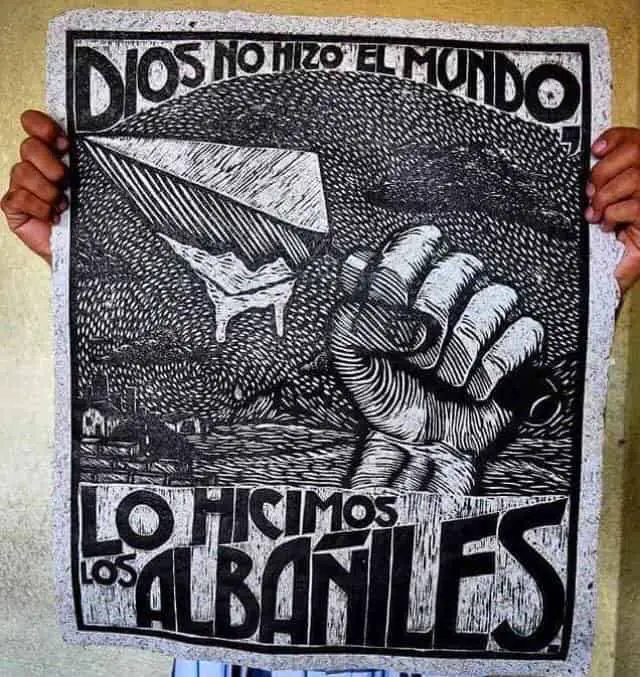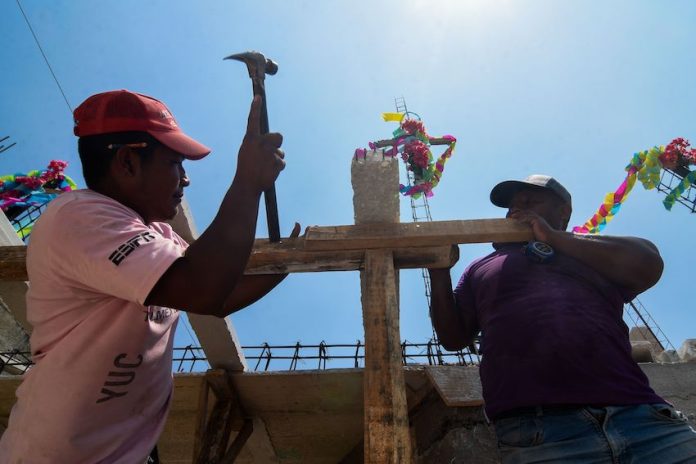On May 3, many cities across Spain and Latin America commemorate the festival known as the Day of the Holy Cross.
Mexican builders at some point adopted the cross as their patron, which is why in Mexico, May 3 is also known as día de los albañiles (Construction Workers’ Day).

Why exactly the cross became such an important symbol for albañiles isn’t clear, but it’s tradition here on this day to place a cross decorated with natural or paper flowers atop buildings or houses under construction.
To celebrate Day of the Holy Cross, construction workers share a meal together, usually paid for by the project manager or the person who owns the site being built. In this edition of Mexico in Numbers, we take a look at the data on albañiles and the nation’s construction industry.
According to the government’s Data México platform, at the end of 2022, 1.63 million people were employed in the category of construction workers, stonemasons and related jobs nationwide – of which 90.2% were in the informal sector. This means that more than 1 million construction workers do not have social security or any other legal benefits despite working long hours in a perilous job.
This is far higher than the percentage of workers in the labor market as a whole who have informal jobs (55.1% in Q4 2022), underscoring the vulnerability of these workers.
Although a construction worker’s income varies based on factors such as the type of work he performs, the length of a project and which state in which he is working, the average salary for a construction worker who worked 5.3 days per week in Q4 2022 was 7,400 pesos per month (roughly US $412), according to numbers from the National Occupation and Employment Survey (ENOE).
The states with the best salaries per month for construction workers are Baja California Sur, with 13,100 pesos (US $502); Nayarit, with 11,300 pesos (US $467); and Sinaloa with 10,700 pesos (US $462).
Data México also reported that just over 39% of those employed in the construction industry had 7 to 9 years of schooling.
By standards established by the General Education Law, some 635,700 construction workers therefore finished middle school. The average worker age is 44 years old.
In Q4 of 2022, a mere 1.23% of the construction workers were female.
According to the national statistics agency (INEGI) in February 2023, the number of workers in the construction of commercial, industrial and residential buildings increased 2.7% over 2022.
COVID-19 hit the industry hard. According to experts, the historical average contribution of the construction industry to Mexico’s GDP has been 7.5%. However, by the end of 2022, it was only 6%.
There are some signs of recovery however: INEGI data shows the construction sector grew at an annual rate of 6.8% in February, and new estimations indicate that this year, it could continue to grow as much as 2.2%.
While these figures show improvement in the industry, BBVA economists Carlos Serrano, Marissa González and Samuel Vázquez recently told the newspaper El Economista that this is far from a total recovery.
With reports from El Economista
